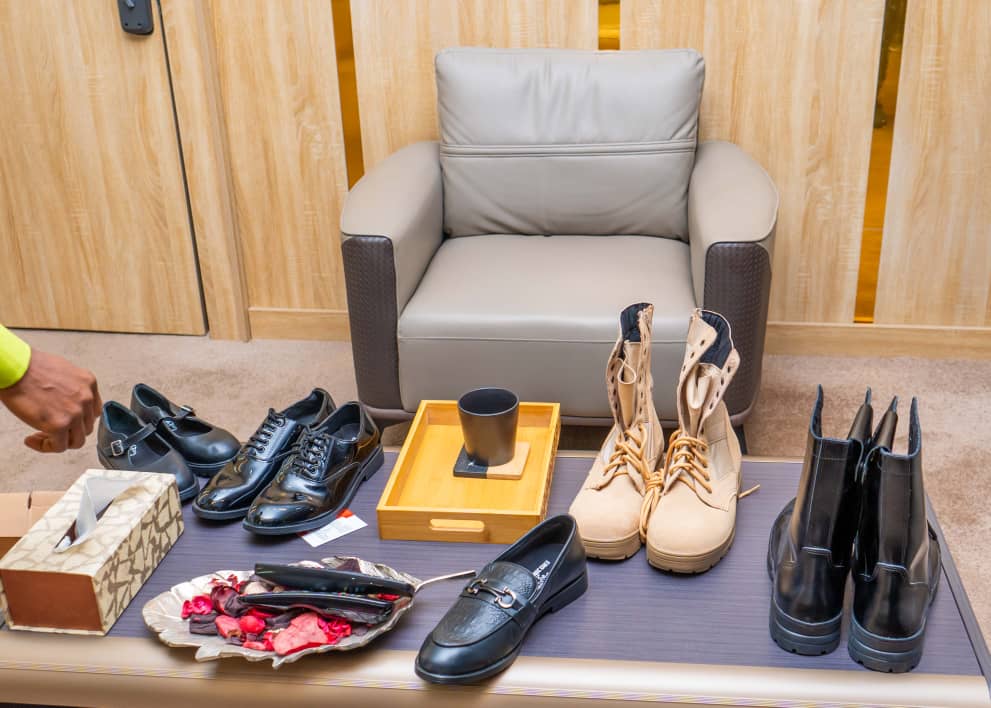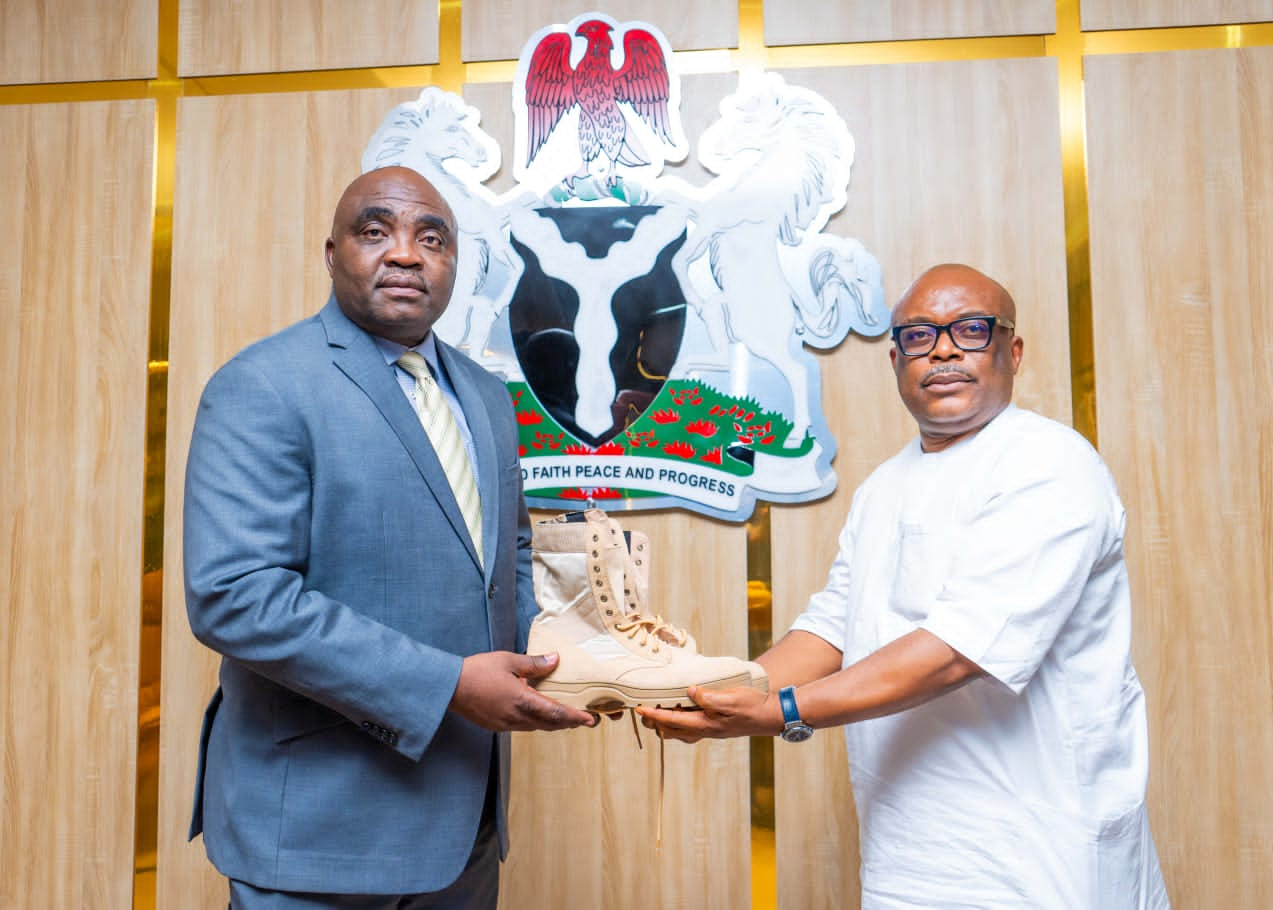Listeners:
Top listeners:
-
play_arrow
104.9FM Best rock music demo
-
play_arrow
Demo Radio Nr.1 For New Music And All The Hits!
-
play_arrow
Demo Radio Techno Top Music Radio
-
 play_arrow
play_arrow
Police Commissioner Launches Weapon and Riot Control Training for FCT Officers Democracy Radio
By Oluwakemi Kindness

The Infrastructure Concession Regulatory Commission (ICRC) says the Federal Government’s Public Private Partnership (PPP) initiative in the shoe and garment factory under the Nigeria Correctional Service (NCoS) is capable of meeting a substantial part of the uniform needs of Nigeria’s paramilitary agencies.
This development follows President Bola Tinubu’s directive on the procurement of locally produced goods—a key component of his administration’s Renewed Hope Agenda.
According to a statement on Sunday by the Acting Head Media, ICRC, Ifeanyi Nwoko, the Director General of ICRC, Dr. Jobson Oseodion Ewalefoh, stated this when the Chief Executive Officer of Erojim Investments Limited, Dr. Jimmy Ntuen, paid him a courtesy visit.
Dr. Ewalefoh, affirms that the Aba-based shoe and garment factory, alongside a tannery (leather processing facility) set to open in Kano, will significantly reduce Nigeria’s reliance on imports.
“With the Aba shoe and garment factory capable of producing 1,500 shoes per day, and a tannery set to open in Kano, we are confident that Nigeria can fully meet the uniform needs of our paramilitary agencies,” Dr. Ewalefoh said.
“This is not just about producing shoes and garments—it’s about creating jobs, supporting local industries, and reducing our dependency on imports in line with the President’s directive to patronize made-in-Nigeria goods.”
He adds that the Renewed Hope Agenda represents more than a political promise—it is a strategic blueprint for self-reliance, local capacity development, and economic growth driven by effective PPPs.
For Dr. Ntuen, CEO of Erojim Investment, the concessionaire behind the Aba facility—commended President Tinubu, the Nigerian Correctional Service (NCoS), and the ICRC for their support, which he describes as instrumental to the success of the project.
According to him, the Aba factory, which he says is the largest shoe factory in West Africa, boasts an installed capacity to produce 1,500 shoes and cut 10,000 garments daily.
He reveals that the facility has already supplied thousands of high-quality shoes to the NCoS and is ready to meet the needs of other paramilitary outfits.
“We have the capability to meet the local needs of government agencies, and very soon, we will begin producing for the general public,” he said.
“Our Aba factory has created over 300 direct jobs, and the new leather, shoe, and garment factory launching in three months will create an additional 340 direct jobs and over 1,500 indirect jobs.”
Dr. Ntuen also emphasizes that the quality of shoes produced at the factory is comparable with global brands, affirming the potential of Nigerian craftsmanship when adequately supported.
Written by: Democracy Radio
Similar posts
Copyright Democracy Radio -2024



